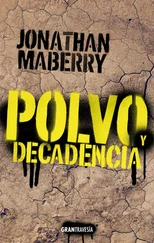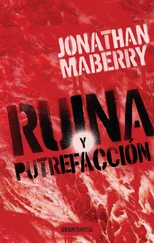Most of the Soviet tanks they had fought thus far had been obsolete prewar machines. Combined with poor tactics, they proved no match for the panzers. But this was one of the new models, a KV-1, a 47-ton monster with armor so thick the only German weapons currently capable of penetrating it were the big guns of the artillery. And the powerful 76.2-millimeter cannon on the behemoth’s massive turret could easily punch through a Mark III.
Tentacles lunged for the KV-1, coiling around its hull like serpents. Vapor rose as their rows of suckers, apparently secreting some sort of acidic enzyme, started melting through, trying to get at the helpless crew trapped inside.
With blinding speed the thing also turned on the Germans, engulfing four of the Mark IIIs in a storm of flailing tentacles. Langer’s tank, farther back, was ignored for the moment.
“Open fire!” he ordered. “Machine guns only!”
The bow and coaxial machine-guns erupted with buzzing roars as Koch and Meyer slashed at the tentacles entwining the other vehicles. Lines of green tracers streaked across, 7.92-millimeter bullets shredding pale rubbery flesh and splattering sticky blood, ringing and ricocheting off the smoldering steel. The desperate voices of the other tank commanders flooded the radio. The thing, whatever it was, grew new limbs as fast as they were blown off. The voices disintegrated into screams.
Langer’s crew cursed helplessly as the other four German tanks were reduced to corroded, entangled hulks. Hatches were thrown open on a couple, but no one emerged. The radio fell silent. The KV-1 still fought the creature, but tentacles were inexorably dissolving through even its thick armor. The running gear on one side had already melted and collapsed, immobilizing it.
The thing turned its attention to Langer’s tank next. He dropped into the turret and slammed the hatch closed as the Mark III was seized.
“Schultz, get us out of here!”
Schultz shifted into reverse and floored the accelerator pedal. The 300-horsepower Maybach engine bellowed like a bull, but the straining Mark III could not move. He wrenched the steering levers back and forth, desperately trying to wrestle the tank free.
“I can’t break loose!” he said.
The metal around them began to bubble and hiss. More tanks rattled out of the gloom. Through the visor Langer recognized the silhouettes of the T-26, a light Russian tank considered easy meat for German anti-tank gunners. They had destroyed untold numbers of them in battle. Three raced up in what looked to Langer to be a suicide charge, a brave but futile attempt to divert the thing’s attention.
Their gun barrels were shorter than normal. A moment later he realized why when their stubby muzzles aimed upwards and long yellow-white streams of fire jetted out. These were KhT-133 tanks, a flamethrower variant of the T-26 designed for assaulting fortifications.
The slimy tentacles ignited instantly, recoiling as fire flashed along their length and wreathed them in orange flames. Langer’s tank and the KV-1 were released. The blazing, writhing limbs shrank back into the crevasse and disappeared from view. Oily black smoke rose; Langer gagged on an even more horrible stench.
“Burn, you bastard, burn!” said Koch.
Russian infantry, engineers judging from their equipment, jumped down from the tanks and hurried forward to the edge. Langer guessed they would set demolition charges to turn the lair into a tomb, burying the horror forever.
The KV-1’s turret began rotating back towards him.
Langer jerked a cable repeatedly. In rapid succession smoke canisters mounted on a rack at the rear of the Mark III dropped to the ground.
“Back us up!” he said.
Schultz reversed into the thick cloud billowing up. The tank’s front armor was the thickest so he kept that towards the enemy, but he also tried to face it at an angle, giving them a chance that an incoming round might ricochet instead of penetrating.
The KV-1’s cannon boomed and a loud clang deafened the crew. Meyer and Hoppe cried out; hot pain stabbed Langer’s leg. The shell had glanced off, but the impact sprayed spall across the compartment like shrapnel. Moments later a second screeched past, missing entirely, the Russian gunner’s aim spoiled by the smoke screen.
Schultz kept going backwards until they were behind the cover of the hill, then slammed the levers to spin the tank around, the tracks ripping up the dirt. He shifted into forward gear, stomped down the accelerator, and roared off at full speed into the night.
Gritting his teeth against the pain of his wound, Langer watched for signs of pursuit, but saw none. The KV-1 was disabled and the flamethrower tanks were still finishing off the creature. The Germans drove on in silence, shaken by the vision of the nameless thing they had stirred up, thinking of the comrades they had lost — and for what?
As Hoppe opened a first aid kit, Langer sourly reflected that Heinrich Himmler would have to concoct a new scheme to impress the Führer.

PTEARING ALL BEFORE US
Steve Ruthenbeck
Five men on horseback rode through a sea of grass.
And then there were four…
A sun so hot it might have been the devil’s eye fried Grant’s face. Sweat turned his blue uniform black, and the yellow gloves tucked into his belt flopped with each step of his horse. Grant couldn’t tell which smelled worse, him or his mount.
Grant tried to take his mind off his discomfort by reading a newspaper. Headlines included: Alexander Graham Bell receives a patent for an invention called a telephone; Dakota farmer discovers a dinosaur skeleton in wheat field; Morgan Bulkeley elected President of the National League of Professional Baseball Clubs…
Success stories everywhere, so why couldn’t it happen to him?
Envy raised Grant’s temperature further. He removed his hat to mop perspiration from his brow, swallowed the last gulp of tepid water from his canteen and turned back to see how the rest of the party was doing.
Breckenridge slept in his saddle. Stubble covered his cheeks, and dust turned his sunburned skin to the ashen tone of a corpse.
Webster rode behind Breckenridge. Webster had been overweight when he joined the Third Cavalry, but two years of living mainly on beans and hardtack so tough it could double for bricks, if a mason was desperate enough, had turned him into a wisp.
Paulson scanned the horizon for threats. He didn’t bother with surveying the immediate area. If Indians were within killing range, a person wouldn’t see them until the bullets started flying.
Bringing up the rear, a roan stallion plodded along with something like supplication in its manner. It saddle was empty.
“Whoa,” Grant stopped his horse. He tucked the newspaper under his saddle and waved a swarm of buffalo gnats away from his face before their bites could swell his eyelids.
“What is it?” Breckenridge jerked awake. “What’s wrong?”
“Where’s Jack?” Grant asked.
Jack was short for Jackrabbit Otter, an Indian scout who helped the white men due to a longstanding feud with the Cheyenne. Grant once saw the man divine the nature of an Indian party from the position of the urine puddles left by their horses (war parties seldom used mares). Such skills were unnecessary in this campaign, however. The Indian trails they had come across were over half a mile wide. The ground looked like a plowed field from all the lodge poles dragged across it. Area wildlife was also stirred up by the multitudes passing through. Grant and his party had come across a mountain lion even though the Bighorn Mountains were fifty miles away. These sights compelled Jackrabbit Otter to sing Amazing Grace , which he had adapted as his new death song.
Читать дальше
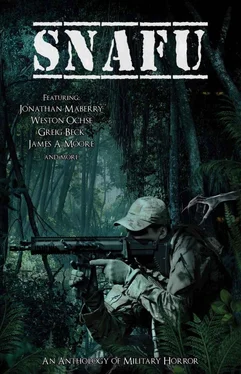

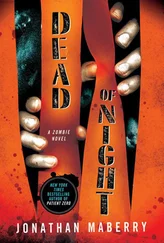
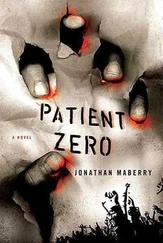


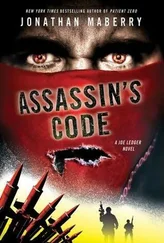




![Джозеф Нассис - SNAFU - Heroes [An Anthology of Military Horror]](/books/412548/dzhozef-nassis-snafu-heroes-an-anthology-of-milit-thumb.webp)
